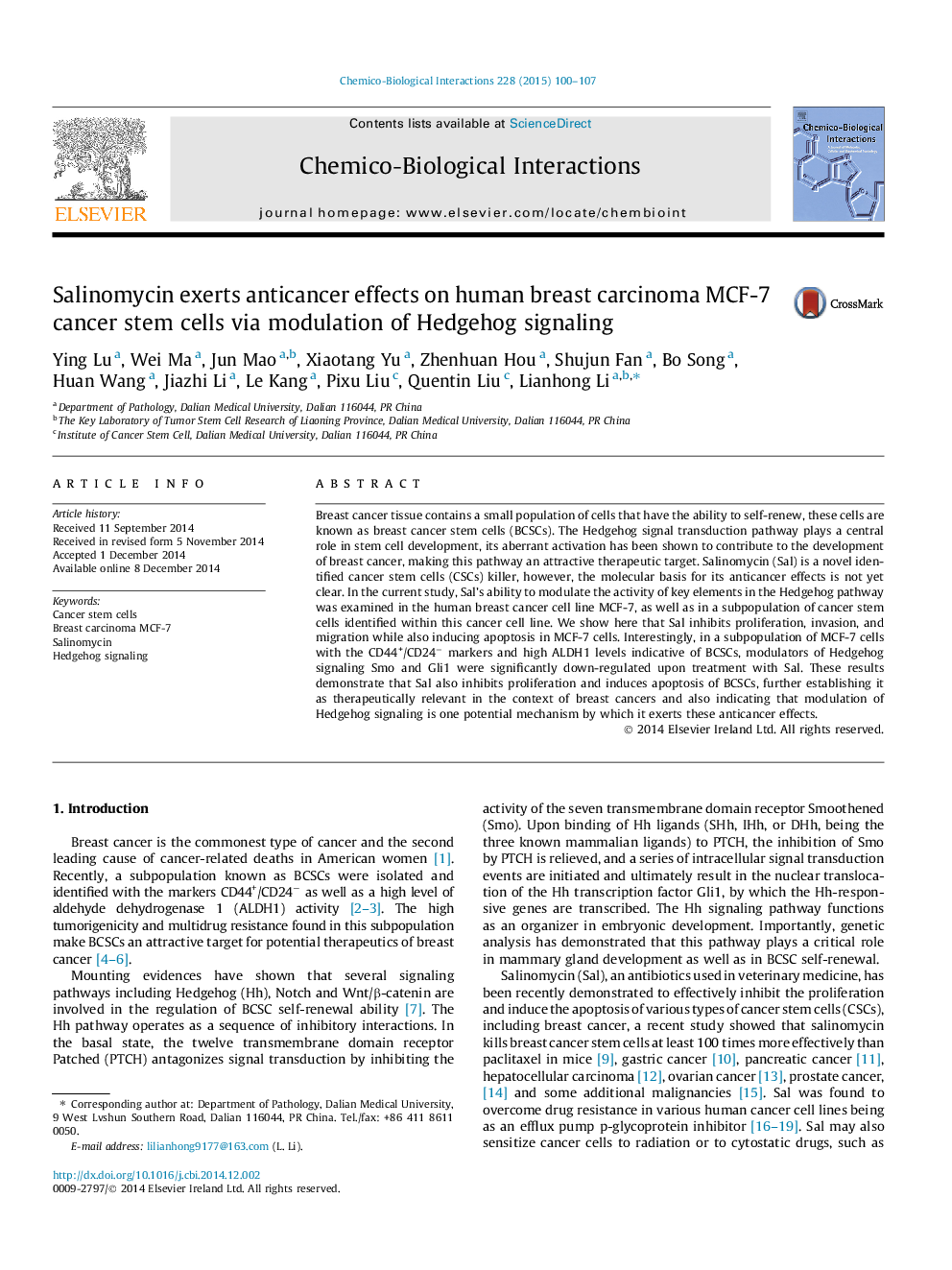| Article ID | Journal | Published Year | Pages | File Type |
|---|---|---|---|---|
| 5847941 | Chemico-Biological Interactions | 2015 | 8 Pages |
â¢Sal inhibits the viability of MCF-7 cells in a dose and time-dependent manner.â¢We prove that Sal induce the apoptosis of MCF-7 cells in breast cancer.â¢Sal suppresses BCSCs in MCF-7 cells.â¢Sal inhibits invasion and migration of MCF-7 cells.â¢Sal inhibits BCSCs via downregulation of Hedgehog-Gli1 signaling.
Breast cancer tissue contains a small population of cells that have the ability to self-renew, these cells are known as breast cancer stem cells (BCSCs). The Hedgehog signal transduction pathway plays a central role in stem cell development, its aberrant activation has been shown to contribute to the development of breast cancer, making this pathway an attractive therapeutic target. Salinomycin (Sal) is a novel identified cancer stem cells (CSCs) killer, however, the molecular basis for its anticancer effects is not yet clear. In the current study, Sal's ability to modulate the activity of key elements in the Hedgehog pathway was examined in the human breast cancer cell line MCF-7, as well as in a subpopulation of cancer stem cells identified within this cancer cell line. We show here that Sal inhibits proliferation, invasion, and migration while also inducing apoptosis in MCF-7 cells. Interestingly, in a subpopulation of MCF-7 cells with the CD44+/CD24â markers and high ALDH1 levels indicative of BCSCs, modulators of Hedgehog signaling Smo and Gli1 were significantly down-regulated upon treatment with Sal. These results demonstrate that Sal also inhibits proliferation and induces apoptosis of BCSCs, further establishing it as therapeutically relevant in the context of breast cancers and also indicating that modulation of Hedgehog signaling is one potential mechanism by which it exerts these anticancer effects.
